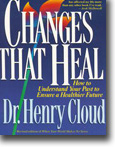When I Survey The Wondrous Cross
This hymn, considered here in the middle of Holy Week, is thought by many to be the greatest hymn ever written. Placed it in its historical perspective, it was actually a radical departure from the church music of the day. It was one of the earliest to be written in the first person introducing a personal religious experience that did not just sing only words from Scripture. It was composed by Isaac Watts who lived from 1674-1748, an English pastor, preacher, poet, and hymn writer, who wrote about 600 hymns and is frequently referred to as the father of English hymnody.
This hymn, considered here in the middle of Holy Week, is thought by many to be the greatest hymn ever written. Placed it in its historical perspective, it was actually a radical departure from the church music of the day. It was one of the earliest to be written in the first person introducing a personal religious experience that did not just sing only words from Scripture. It was composed by Isaac Watts who lived from 1674-1748, an English pastor, preacher, poet, and hymn writer, who wrote about 600 hymns and is frequently referred to as the father of English hymnody.
Watts was a revolutionary producing "futuristic music" for his time as he boldly departed from the traditional singing of just the Psalms. Emerging from the fiery trials of the Reformation, Protestant churches greatly desired to remain faithful to their battle cry of "sola scriptura" in every detail of faith and life. One implication of this was found in their view of church music.
Not initially received with unquestioned acceptance, Isaac Watts and his hymn "When I Survey the Wondrous Cross" helped to reshape the future of church music as we know it today. Watts’ work was accepted in American churches in the 1740s with the Great Awakening as George Whitefield played a great role in introducing hymn singing to New England and increased the popularity of Watts’ work. The American Puritan Jonathan Edwards even commented in 1742 that his Northampton congregation sang Watts’ hymns, almost to the exclusion of Psalms.
The words of "When I Survey the Wondrous Cross" tell the wonderful story of the paradoxical beauty of Christ’s immense sacrifice woven together with joy and love. Consider it here as you reflect on what Christ did for you on the cross. What would it be like for you, for us, if there had not been a "wondrous cross"?


